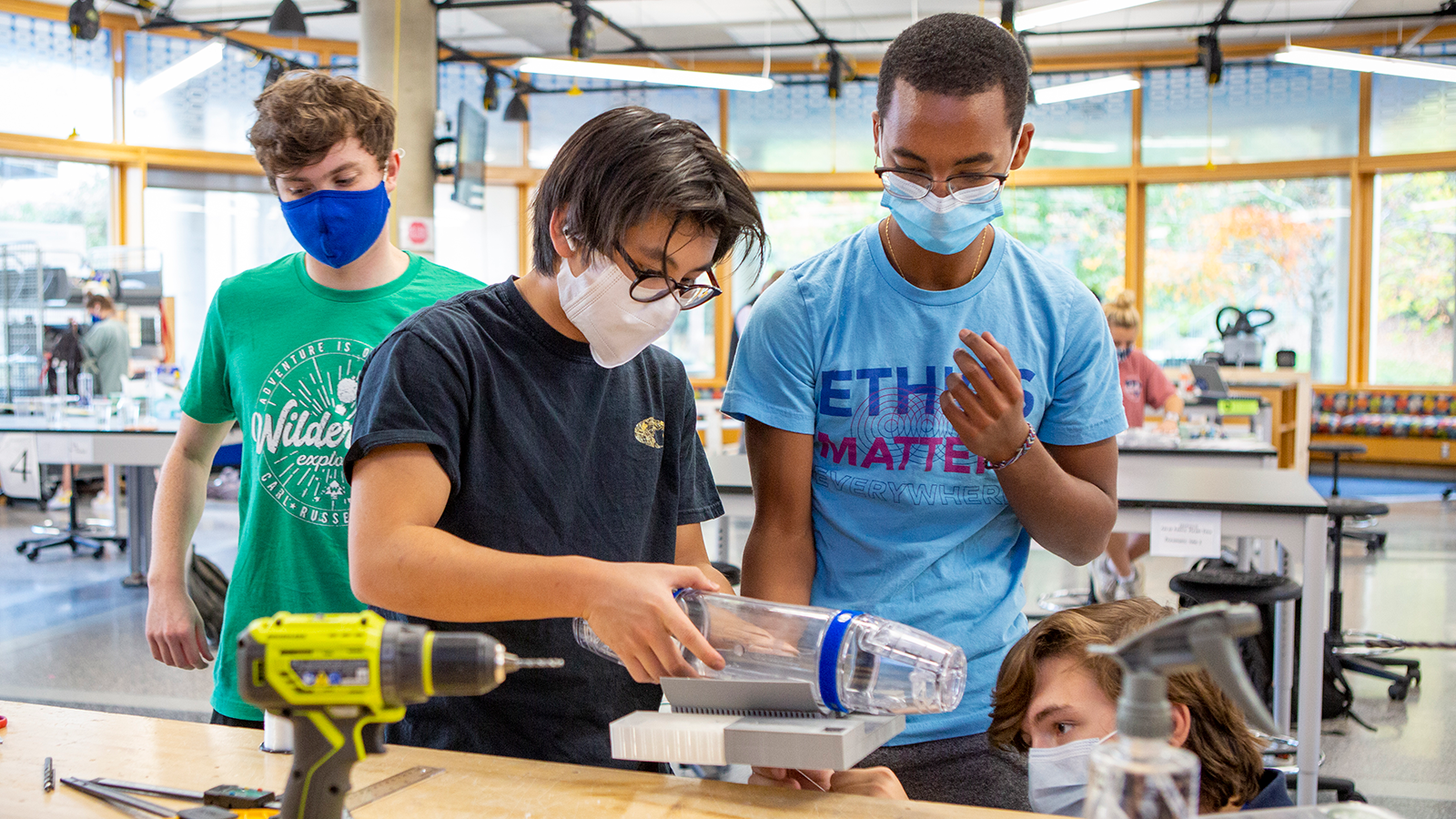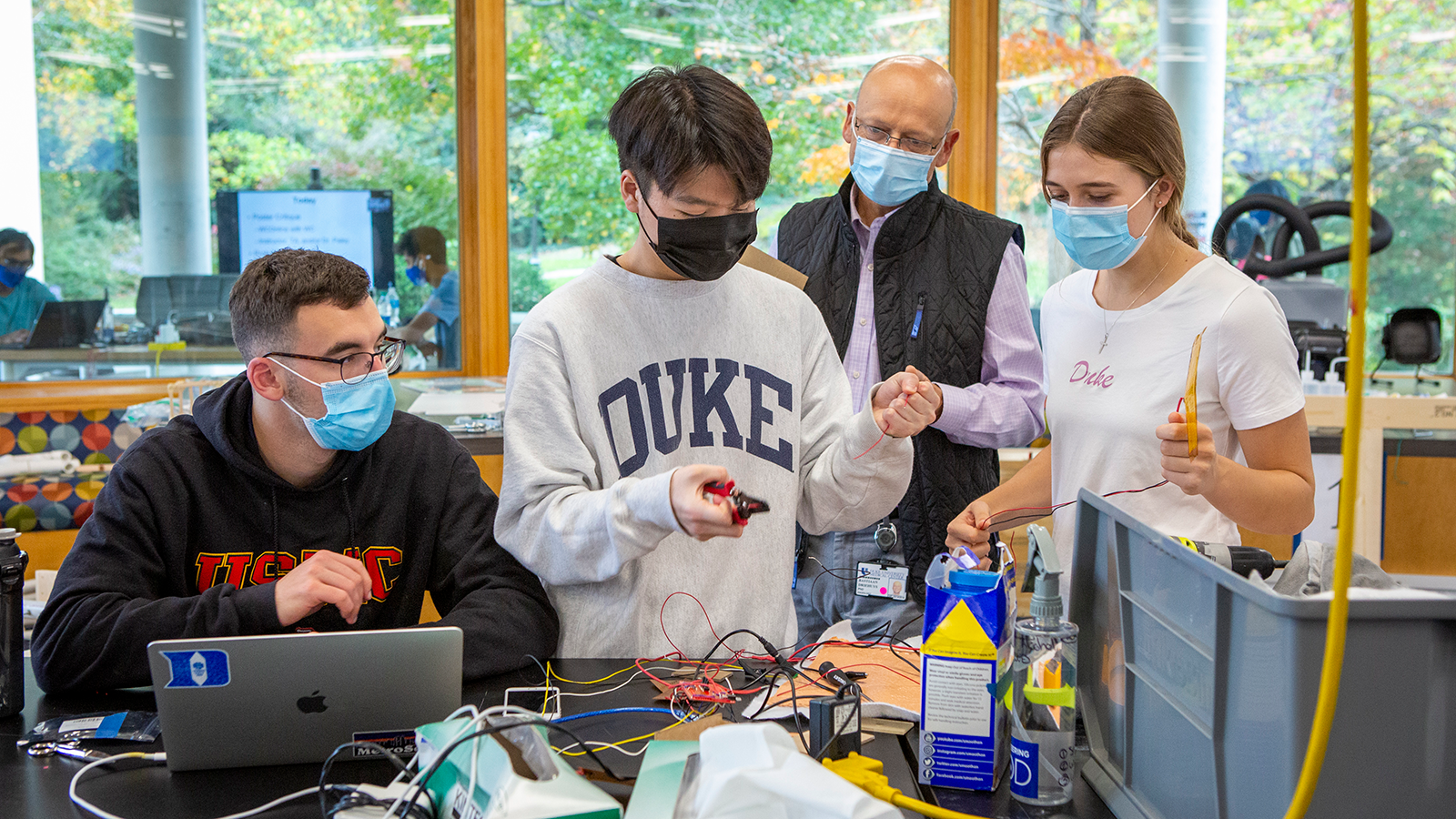Incorporating Ethics Into Engineering
November 8, 2021
Team designs modules for first-year engineering design course

By Lukengu Tshiteya ’22
Modern engineers are increasingly asked to make ethical considerations during the design process while juggling competing interests. For instance, a structural engineer designing a new building may feel pressured to design at the edge of a safety factor in order to lessen production costs. Although various professional codes of ethics require engineers to adhere to the highest principles of ethical conduct, most engineering curricula offer students scant preparation to employ critical ethical thinking.
Duke undergraduate Reya Magan, a double major in electrical and computer engineering and computer science, joined a Bass Connections team to address issues of ethics and engineering and help prepare the next generation of engineers for their careers.
How the Project Began

The groundwork for the Scaffolding Ethics team began during Magan’s experience in the first-year course EGR 101. The project-centric course tasks students to apply the engineering design process to create a product for a Durham-based client.
Throughout the semester, Magan and her classmates encountered several ethical concerns that they felt unprepared for. They noticed that their design process often failed to account for different perspectives and the needs of people of varying abilities.
Christian Ferney, Kenan Institute for Ethics program director, and Ann Saterbak, director of the Duke Engineering First-Year Experience, co-led the Bass Connections project team featuring a group of undergraduate team members and faculty contributors from several disciplines. The team’s diverse range of expertise proved to be fruitful, as they battled through early difficulties in the design process.
At first, when the team members gathered around the table in the Design POD, they realized that the “engineering people” and the “ethics people” had some different ways of organizing and talking about the work. Integration wasn’t as simple as just asking first-year engineering students to read a passage from Aristotle, for example.
Through discussion and assessment of the impact of their educational modules, they “created [frameworks] to structure ethics within individual steps of the engineering design process,” said Magan, who is now a senior.
Thinking Critically About Ethics
The final curriculum consists of a series of four educational modules — Systems Mapping, Perspectives on Pairwise Comparison Charts, Testing Your Tests and the Game of Lifecycle — that help students employ critical ethical thinking and understand how product design is interconnected with the surrounding world. These are formative skills for the first-year design experience and for navigating demanding technical challenges in engineering.
The team joined the spring EGR101 class to test their preliminary modules and relied on student feedback to improve their output. They wanted to build modules that engineers could naturally apply while creating products, “not after the fact like a checklist process,” Magan said. The team’s thorough process and series of considerations helped them stay true to their goal of creating a more “human-centered aspect of design” in engineering curricula, Magan added.
By the end of the workshops, the project team noticed a substantial change in student attitudes to integrating ethics into engineering. “Many students who originally said it was okay to make [ethical] trade-offs for product functionality changed course, saying that products should work, but they shouldn’t harm anyone along the way,” Magan said.
The final educational modules were introduced to EGR 101 students during the fall 2020 semester and were positively received. They are now required for all Pratt students to take during their Duke careers.
In July, the team presented a paper on their work at the 2021 American Society for Engineering Education (ASEE) annual conference.

Looking Ahead
Although her time with the Scaffolding Ethics team is over, Magan remains committed to integrating ethics into engineering, specifically in product design and ideation. She imagines a future EGR 101 course that features workshops empowering students to analyze and evaluate potentially problematic or ethically questionable aspects of the design process.
“Now that the engineering process has ethics involved,” said Magan, “I think it will help students make necessary trade-offs and have critical discussions about ethics.”
Duke University senior Lukengu Tshiteya is a Bass Connections and Interdisciplinary Studies content creator majoring in Public Policy. Lukengu loves making music and creating outlandish hypothetical scenarios.
Learn More
- View the team profile.
- Browse the Bass Connections 2020-2021 Annual Report.
- Read student stories about their Bass Connections experiences.
